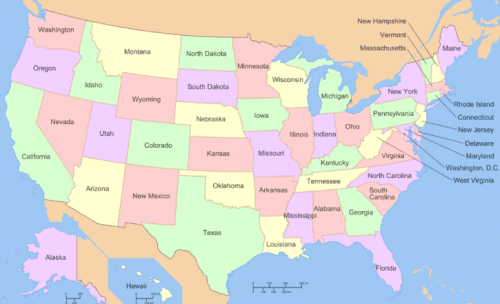
Legislative update: Numerous states consider CLEAN Programs
The Clean Coalition is actively supporting legislative efforts in Arkansas, Minnesota, and Oregon; it is also building support for a statewide CLEAN Program in Iowa and supporting an important bill in Michigan.
Wholesale distributed generation (WDG) in the United States may get a big boost from a variety of states in 2013 as a number of jurisdictions are navigating legislation to adopt Clean Local Energy Accessible Now (CLEAN) Programs. The Clean Coalition is actively supporting legislative efforts in Arkansas, Minnesota, and Oregon; it is also building support for a statewide CLEAN Program in Iowa. Furthermore, the Clean Coalition is supporting an important bill in Michigan to ensure equal property tax treatment for both wholesale and retail DG. Unfortunately, Texas provides a painful example of how this property tax issue can block significant deployments of clean local energy.
 Currently, the value of many renewable energy systems in Michigan is included in the property tax assessment. The unwise inclusion of renewable systems in Michigan’s property taxes can increase a 20-year power purchase agreement (PPA) by more than one cent per kWh, which ultimately raises the cost of renewable energy for consumers.
Currently, the value of many renewable energy systems in Michigan is included in the property tax assessment. The unwise inclusion of renewable systems in Michigan’s property taxes can increase a 20-year power purchase agreement (PPA) by more than one cent per kWh, which ultimately raises the cost of renewable energy for consumers.
In Texas, a similarly misaligned property tax has increased PPA rates by up to 2 cents per kWh. As written, Michigan House Bill (HB) 4245 would change current property tax laws to exempt renewable energy systems that provide on-site power. While this is a step in the right direction, HB 4245 fails to provide a property tax exemption for wholesale distributed generation (WDG) facilities, which serve local load rather than just on-site load. The Clean Coalition is supporting an HB 4245 amendment to exempt all distributed renewable systems that generate less than 10,000 megawatt-hours per year, which would include roughly up to 1.5 MW biomass projects, 3 MW wind projects, and 8 MW solar projects.
The Arkansas Distributed Generation Act – if passed into law – would make the state a national energy leader through the creation a 1,200 MW statewide CLEAN Program. The Clean Coalition has made a number of key recommendations to improve program pricing, contract terms, and eligibility. Additionally, Craig Lewis, Executive Director of the Clean Coalition, and Bill Ritter Jr., former Governor of Colorado and current Clean Coalition Advisor, recently visited Little Rock to build support for this bill.
In Minnesota, the Solar Energy Jobs Act of 2013 calls for a mandated amount of solar PV (similar to a Renewable Portfolio Standard), as well as a CLEAN Program supporting solar PV projects greater than 40 kilowatts. If passed into law, this precedent-setting legislation would require full cost and value accounting for all energy procurement decisions, including line losses, future fuel costs, and local economic and environmental benefits. The Clean Coalition – which has provided detailed recommendations on pricing factors, incentive provisions, and the scope of the required studies – applauds this ambitious bill and looks forward to promoting this legislation as a model for the rest of the country.
The Clean Coalition has also been active in Oregon, where two, competing DG-related bills were under consideration. One bill, brought forward by Oregonians for Renewable Energy Policy, sought to establish a significant CLEAN Program for all renewable energy technologies, differentiated by type and project size. The other bill, promoted by the Sierra Club, outlines a general procurement program based upon true “solar values”. On a recent trip to Oregon, Sahm White – one of the Clean Coalition’s policy directors – provided guidance on both legislative vehicles to help improve cost-effectiveness while maintaining program scale. Sahm also worked to achieve collaboration between partiesto maximize the probability of effective results.
Iowa’s ambitious bill (SF 372) aims to establish a statewide CLEAN Program that could bring as much as 60 MW online annually. The bill, which has bipartisan support, passed the Senate Agriculture Committee unanimously and is now on the Senate floor. Importantly, this bill fosters the development of distributed wind projects owned by Iowans – in contrast to Iowa’s existing wind projects, which are almost exclusively large- scale and owned by multinational corporations. This bill is also intended to be expanded to WDG solar and biopower. The Clean Coalition is providing program design recommendations and is helping to build support for this transformational bill.

